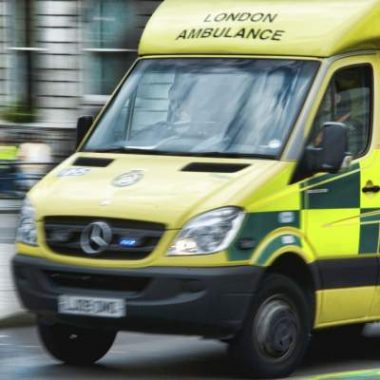The BMA has been told to remind services GPs should not be a replacement for the ’faltering ambulance service’, following cases where GPs had to see newborn babies with sepsis because there was no ambulance crew available.
A motion proposed by GP Survival founder Dr Alan Woodall was passed at the Welsh LMCs conference last Saturday in Llandudno.
Conference members agreed to ask GPC Wales to remind health service providers, in particular Welsh Ambulance Service NHS Trust (WAST) and NHS 111 that GPs are not an emergency response provider.
The North Wales conference also passed the motion stating they believe that ‘[Welsh Government] and [health boards] must stop the practice of GPs being expected to attend emergencies outside of practices as a replacement for a faltering ambulance service and hospital overcrowding.’
There has been growing concern in Wales that GPs are being put under pressure to care for emergency patients by stretched ambulance services.
Dr Woodall gave an impassioned speech saying that GPs were expected to provide emergency care, often for several hours, due to a lack of ambulance supply.
He said: ‘An email arrived from one of my fellow GPs in North Powys just this week pointing out that she had to see a five week old baby with a fever of 40 and saw them at around about 5.45pm.
‘There was no ambulance available. The child was incredibly sceptic, temperature of 40, heart rate of 200, a cellulitic spreading rash, raised respiratory rate and capillary refill time of four seconds.
‘The ambulance service had no crew to send, eventually an emergency response provider turned up who was no more help than anybody else that was available to provide care and eventually at 7.15 at night an ambulance did turn up to take the child to hospital. The child had sepsis.
‘This is increasingly happening and increasingly GPs are being expected to provide emergency care and emergency response care, often for hours because of a lack of supply of ambulances in WAST.’
He added: ‘We cannot and must not be an emergency response service. We haven’t got the time, capacity the skills or the ongoing training to do this,’ he said.
Dr Alwyn Parry from North Wales LMC added that the current system was causing conflict and anxiety amongst GPs over how to deal with these emergency situations.
‘I can’t see that a GP is meant to add anything apart from superficially appearing to plug gaps in a service and place themselves at risk of criticism should things go wrong.’ he said.
Before the motion was passed BMA Plaid Cymru GP committee chair Dr Phil White reminded delegates that GMC guidelines did expect doctors to deal with certain kinds of emergencies.
But he added: ’I think that sometimes GPs are written into operating procedures by some people without thought.’
Dr Woodall responded and said the ‘catch-all’ situation where GPs became the ‘default dumping ground for any services’ inadequacies’ was no longer fit for purpose.
‘Patients will die and patients will suffer because we can’t be in three places at once,’ he said.

















